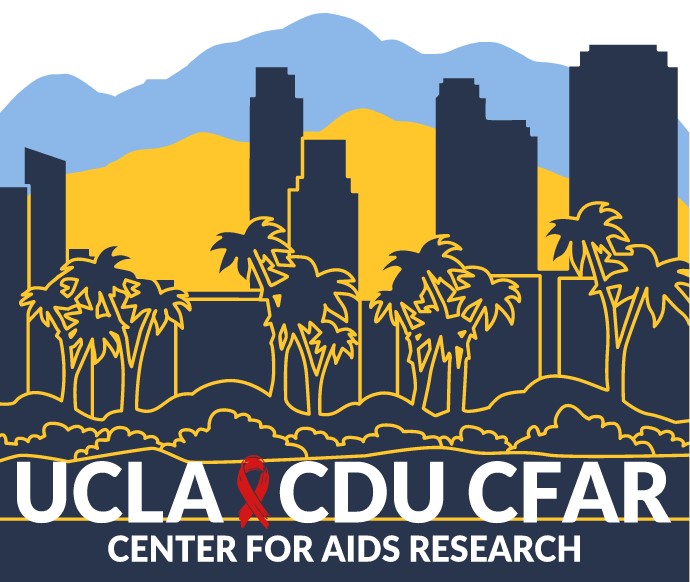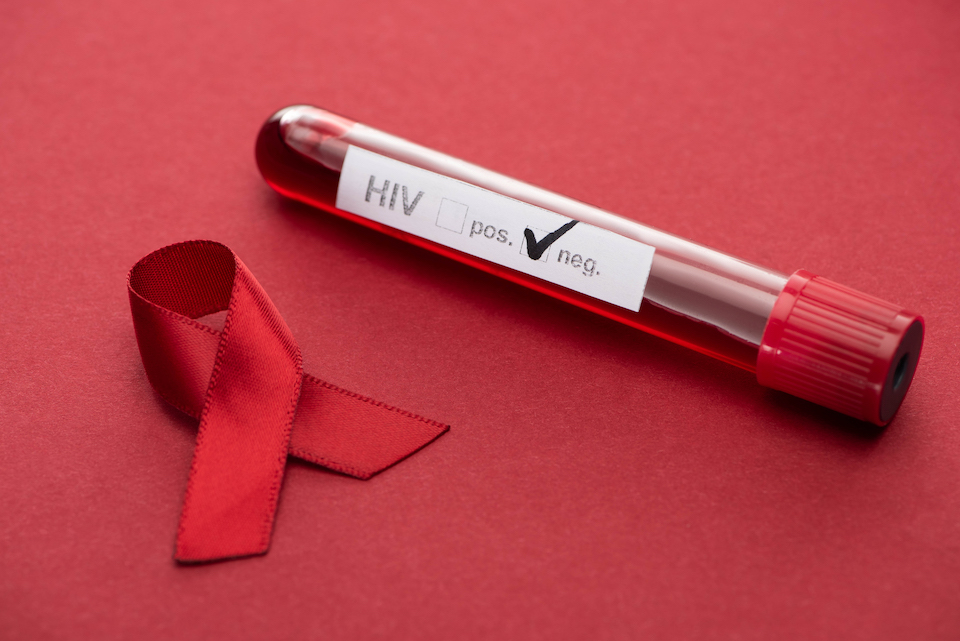New Funding Awarded To UCLA-CDU CFAR and UCLA CHIPTS To Support The Ending The HIV Epidemic Initiative
In September 2022, the UCLA-CDU CFAR and UCLA Center for HIV Identification, Prevention and Treatment Services (CHIPTS) received funding for a total of seven new Ending the HIV Epidemic supplement awards from the National Institutes of Health. These awards support one- and two-year implementation research projects as part of a national effort to enhance the implementation science knowledge base needed for the Ending the HIV Epidemic in the U.S. (EHE) initiative.
Learn more about the seven innovative projects that were awarded funding this year below.
UCLA – CDU CFAR
“Understanding the implementation of SB 159: Pharmacist delivered pre- and post-exposure prophylaxis in three high priority EHE counties in CA (Los Angeles, Riverside and San Bernardino Counties)”: Pharmacist-delivered PrEP/PEP has the potential to expand access to key biomedical prevention strategies under the EHE Prevention Pillar. This study will inform best practices for pharmacies seeking to expand service delivery to include PrEP/PEP and help to identify what changes in law, policy, and/or funding, if any, will be required to propel pharmacist-delivered PrEP/PEP in California. Tithe aims of this study include: 1) build a coalition of key regional stakeholders to understand implementation barriers and facilitators to pharmacist-delivered PrEP/PEP among key populations; 2) determine differential barriers and facilitators to implementation of pharmacist-delivered PrEP/PEP, targeting geographic areas of vulnerability to HIV and reduced access to PrEP (“PrEP deserts”) compared to “non-PrEP deserts;” and 3) engage a key regional stakeholder coalition to identify locally-based strategies to reduce barriers and enhance facilitators to implementing pharmacist-delivered PrEP/PEP. (PI: Ian Holloway)
“Addressing intersectional oppression in Asian Pacific Americans with HIV in Southern CA: An Implementation Science Framework”: The purpose of this study is to collaborate with the local Asian and Pacific Americans with HIV (APAWH) community to adapt and evaluate the appropriateness, acceptability, feasibility, and preliminary efficacy of a 4-session, 4-week Social justice Oriented, Family Informed self-management intervention to promote health among APAWH in Los Angeles and Orange counties (SOFIAA). The aims include: 1) adapt an evidence-based intervention (the SOFIAA) to address intersectional oppression experienced by APAWH in Southern California, and 2) evaluate the SOFIAA’s implementation outcomes and preliminary effectiveness on APAWH’s mental and physical health. (PI: Wei-Ti Chen)
“Implementing a Community-Engaged Equity Approach to Identify Barriers and Facilitators to the PrEP Care Continuum in Long Beach, CA”: This study is designed to identify individual and structural barriers and facilitators affecting engagement in the PrEP care continuum among BLMSM and transwomen in Long Beach, CA. The aims include: 1) to explore, using qualitative methods, contextually specific barriers to and facilitators of PrEP engagement among BLMSM and transwomen and PrEP services among providers; 2) to obtain, using survey methods, locally relevant estimates of the scope and magnitude of PrEP experiences, barriers and facilitators, and services; and 3) to disseminate and implement study results to increase PrEP care continuum engagement in ways that are meaningful for the Long Beach community. (PI: Laura D’Anna)
UCLA CHIPTS
“Financially incentivizing HIV prevention among high-incidence populations in LA County: Preparing for implementation”: This project aims to collect pre-implementation data in order to design an HIV prevention conditional cash transfers (CCT) intervention and implementation strategy for young Black and Latino cisgender men who have sex with men in Los Angeles County. This includes (A) collecting qualitative data about acceptability, appropriateness, and feasibility of this proposed CCT from consumers and key stakeholders (policymakers, service providers, community members, etc.); and (B) conducting a discrete choice experiment to identify the most-preferred attributes of such a CCT. (PIs: Corrina Moucheraud/Raphael Landovitz)
“Implementation Strategies to Promote Equitable Dissemination of Long-Acting injectable PrEP to Black/Latino MSM and Transgender Women in Los Angeles”: This project will use a community-engaged approach to promote the equitable dissemination of long-acting injectable pre-exposure prophylaxis (LAI PrEP) among Black and Latino men who have sex with men and transgender women (BLMSM/TGW) in Los Angeles County (LAC) through informational/educational community workshops and community-derived, culturally appropriate LAI PrEP messaging. The project has three specific aims. Aims 1 and 2 are to increase awareness and knowledge of, and trust and confidence in LAI PrEP as a new HIV prevention option among BLMSM/TGW and providers serving them. Aim 3 is to develop a LAI PrEP strategic messaging guide to support ongoing diffusion of LAI PrEP information by the LAC Public Health Department’s Division of HIV and STD Programs and BLMSM/TGW service providers to facilitate greater community awareness and stimulate community discourse about the use of this new HIV prevention tool among BLMSM/TGW in LAC. (PI: Ronald Brooks)
“De-Medicalizing PrEP by Partnering with House and Ball Community Using Social Work and Guiding Principles: Prioritizing Young Black LGBTQ+ Individuals”: This study will facilitate the involvement of a locally trusted social work provider agency and a community health center to develop and evaluate the effectiveness of non-medicalized social work and community engagement strategies. The study will proceed in 3 phases over 2 years. The Specific Aims of the proposed study are: Aim 1: Examine barriers and challenges affecting the PrEP care continuum among young Black LGBTQ+ members of the House & Ball Community (H&BC); Aim 2: Formalize H&BC empowerment services that facilitate linkages to support and retention services provided at a comprehensive social work and grassroots engagement agency; and Aim 3: Pilot test equity-focused, community-engaged grassroots model approaches that can support the PrEP care continuum for young Black LGBTQ+ members of the H&BC. (PI: Sung-Jae Lee)
“Applying Behavioral Economic Incentives to Support Implementation of PrEP in a Trans Community Center”: This study will be the first test three discrete behavioral economic strategies for implementing PrEP services in a Trans Community Center (TWC). The proposed supplement will leverage the parent study PrEP Well, a 3-year California HIV/AIDS Research Program-funded implementation science grant to bring comprehensive and gender-affirming PrEP services to scale in a first-of-its-kind transgender community center. Aim 1 will assess the acceptability, appropriateness, feasibility, and preliminary effects of the individual identity behavioral economic incentives (IBEI) approach to support the implementation of the PrEP Well program along with overall self-care at TWC. Aim 2 will assess the acceptability, appropriateness, feasibility, and preliminary effects of offering the community-based identity behavioral economics incentives (CBEI) approach to support the implementation of the PrEP Well program at TWC. Aim 3 will assess the acceptability, appropriateness, feasibility, and preliminary effects of offering the staff-based identity behavioral economic incentives (SBEI) approach to support the implementation of the PrEP Well program at TWC. (PI: Erik Storholm)
If you have any questions about these projects or would like to be connected to a project PI, please contact UCLA-CDU.CFAR@mednet.ucla.edu.


